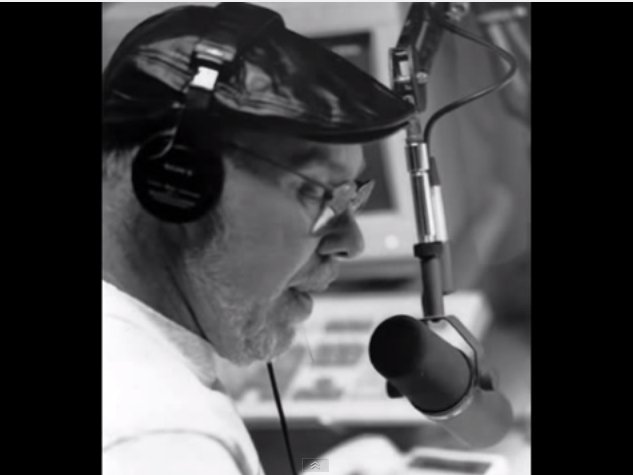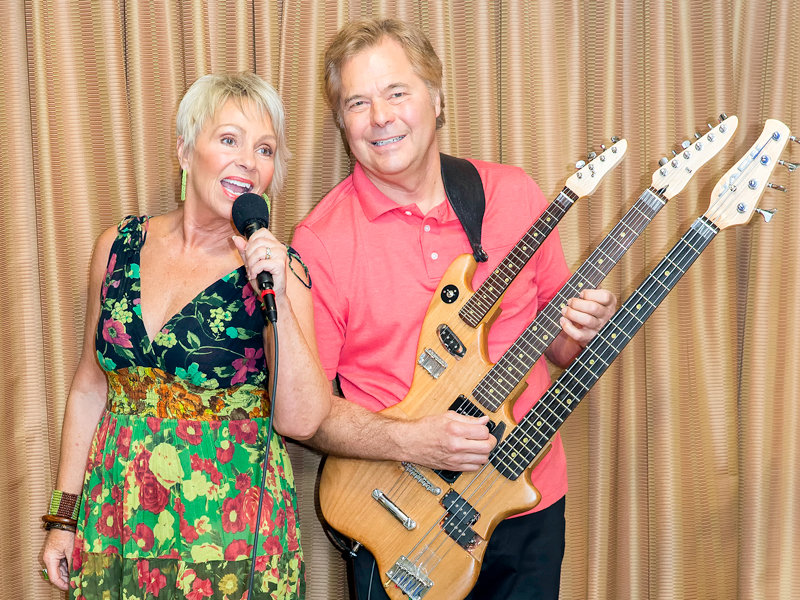It was 11 years ago today when my mother called me from Milwaukee and told me Ron Cuzner had died that day at 64. I was stunned into a Cuzner-like pregnant-pause silence. I had moved to Madison in 1989, so I lost my close connection to Ron in those pre-radio streaming years.
He had spun his last Ellington "Solitude" intro and uttered his last golden catch-phrase. He and his jazz program "The Dark Side" had finally moved on to the light.
Cuzner was the one-of-a-kind disk jockey who exposed countless nocturnal Milwaukeeans to his beloved music on various radio venues, starting in the early 1970s with an "underground radio" station (along with WUWM's Bob Reitman). His longest tenure was at the otherwise-classical music WFMR. Cuzner’s preferred time slot was midnight to sunrise. Hardly a vampire, he also emceed high-profile jazz concerts and ran a small jazz record store downtown.
Long-time Milwaukee Journal-Sentinel media critic Duane Dudek deemed him probably "the most singular stylist in Milwaukee radio history," who "took a slow drawl, meticulous diction and an encyclopedic knowledge of jazz to almost every radio station in the city."
His on-air silences involved exquisite timing between words or phrases, inserting languid grace into his delivery – the opposite of Top 40 DJ hyper-prattle. And sometimes, after the silence, the concluding phrase would be in a slightly lower, softer register ("With a song … in my heart"). He knew how such a deflation of tone could convey emotion and sometimes pathos.
This guy from Racine would quote a humbling lyric: "They’re playing songs of love, but not for me." He faithfully carried the torch for jazz but also another flame, for all the lonely people listening to him. Yes, his music kept him company through all those long, dark nights. But back then, he never knew really who or how many people were actually listening.
Cuzner surely spent countless nights utterly alone until sunrise, feeling sometimes like the most lonesome bluesman. He likely suffered, at times, a bit of Naked City paranoia. He obsessively marked his name on most of his 10,000 CD cases and discs. His vast LP collection is gone, but his wife Janet donated his CDs to the library of the Wisconsin Conservatory of Music.
Cuzner's program migrated almost as often as a restless pied piper, partly because of his dedication to a quintessentially American music that grew up flirting with commercial instincts like an illicit lover. Radio station managers would often simply pull the plug on his show – either a callow son-in-law program manager changing formats willy-nilly or simply for tiring of Cuzner. But he understood the mercurial, ratings-obsessed radio business.
Perhaps his style involved some self-preservation, the cool hipster carrying deep loss on his shoulders with effortless style. That announcing style had what some deemed a faintly patrician insouciance, with impeccable yet fluid and mellow diction. Somebody once niftily characterized his delivery as "an English butler who’d had a few martinis."
Another priceless bit, audible on the July 11, 1999 podcast, is about how his grandmother "used to bake me pies and cookies and things; and she called me Butchie." That one grew out, no doubt, of one of his signature bits: "I sincerely hope you are warm tonight, and that you are together tonight, and that your cookie jar is filled to the very brim … with the cookies of your choice, of course."
These sugary bits had very personal resonance and poignancy because Cuzner was a diabetic, and he died of that condition. Yes, his on-air persona was masterful schtick that grated on some people. But in retrospect, with nothing but recordings of him, the schtick is precious in the best sense (You can access podcasts of many of his shows on Itunes and on the Ron Cuzner Facebook page).
In person, he was laid back, soft-spoken and yet articulate with, I think, a natural ease with diction. Unlike many of us, he took care to say what he meant as precisely and as well as possible, to honor his own thoughts. How many of us bother to do that anymore in conversation or even when texting? Dwindling attention spans may have to do with human behavior as well as all the technology engulfing over our lives, but Cuzner always ended up making a lot of sense when you talked to him.
He also aired his own critical opinion at times. He once commented on a Down Beat magazine review which referred to pianist Mulgrew Miller, bassist George Mraz and trumpeter Lew Soloff as "also-rans." Then he played a dazzling cut from the recording of the three musicians. At the end, he repeated their names and added, "Also-rans, indeed," his voice dripping with irony.
We lived in "Henry's city" as he put it, referencing Milwaukee's long-time mayor Henry Maier. But from midnight to dawn, it was Cuzner’s city.
He was a good friend to me and to many members of the jazz community, especially the musicians who often listened to Cuzner coming home from their late-night gigs.
We befriended each other when Ron became a customer at Radio Doctors Soul Shop on 3rd and North Avenue, where I was the jazz record buyer. Later, I covered jazz for The Milwaukee Journal. Ron would eventually get me my first radio job as a DJ at WLUM when he left that station.
I’m sure Cuzner had many highs and lows in his great career. But because he was there when we went to sleep or when we couldn’t sleep – there for our highs and lows – he and his music became good friends for many people who never met him.
Ron Cuzner was, in his way, our musical consciousness. One of my personal favorite Cuznerisms was, "Twenty-two minutes after the hour. And the hour, of course … is absolutely inconsequential."
That’s funny, but it also conveys some of Cuzner's hip, open-minded philosophy and the program’s aura of wee-hours timelessness. For years, many of us fell asleep to Cuzner so he likely entered the corridors of our dreams, with his jazz infiltrating our alpha waves.
A Keith Jarrett album title sums up Cuzner well: "The Melody At Night, With You."
It seems only fitting to end with Ron's own farewell, a recording of his sunrise closing to his program, accompanied by pianist Don Shirley's gospel tune "Trilogy."





